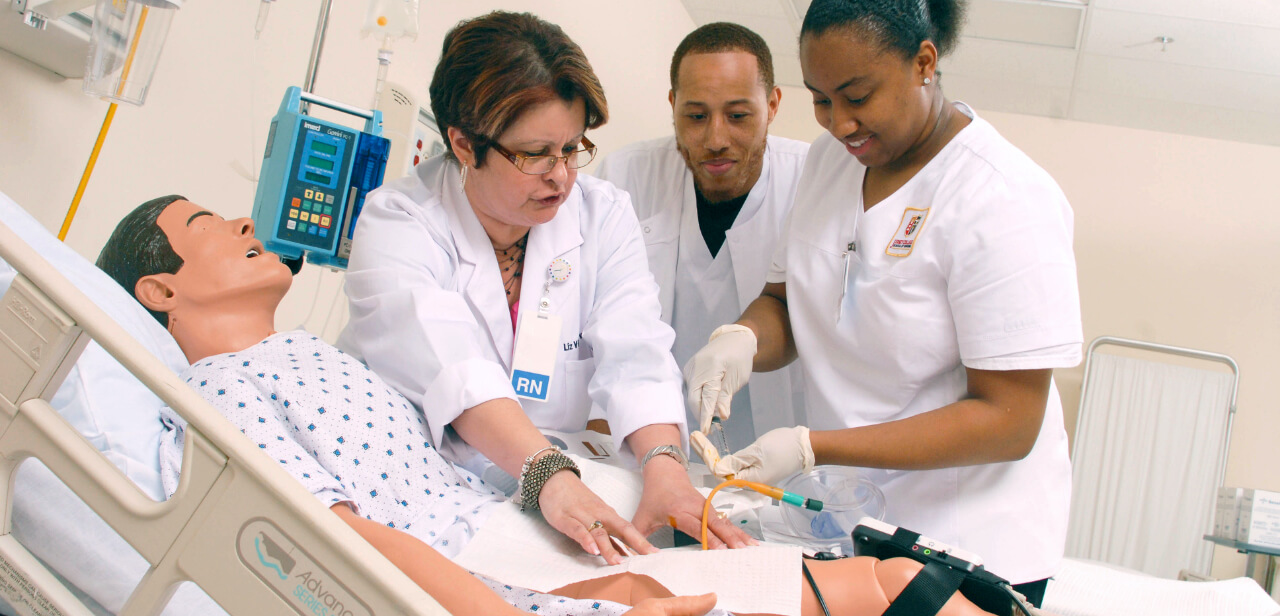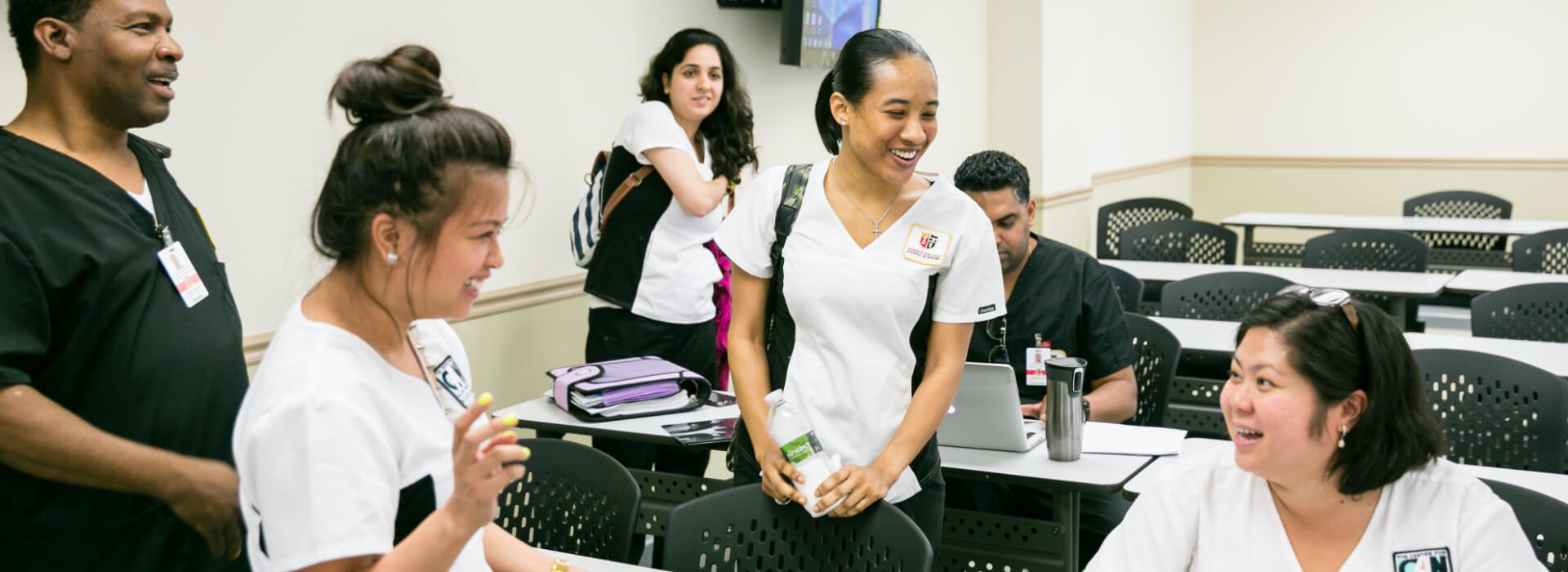
Professional Nursing Program
Professional Nursing Degree Tracks

Generic Track
Professional Nursing (“Generic RN”). The RN Program’s Generic Track culminates in an Associate’s Degree in Nursing. This track option is for individuals who may not have any prior nursing education and are not currently LPNs that desire to become an RN.
This track option is available at the following campuses: Brooksville, Cleveland, Dothan, Fort Lauderdale, Fort Wayne, Jacksonville, Jenkintown, Knoxville, Largo, Melbourne, Mesa, Naples, Port Charlotte, Scranton, Tampa, York.

LPN to RN Bridge
Professional Nursing (“LPN to RN Bridge”). The LPN to RN Bridge Track helps advance the LPN’s career by providing a seamless path to an ADN degree and the RN license. This track option is for individuals who are currently LPNs and desire to become a Registered Nurse.
This track option is available at the following campuses: Brooksville, Cleveland, Dothan, Ewing, Fort Lauderdale, Jacksonville, Knoxville, Largo, Melbourne, Mesa, Naples, Port Charlotte, Scranton, Tampa, Teterboro, York.
Request More Information
If you have more questions about nursing school or the programs offered at Jersey College, don't hesitate to use the form below to get in touch with our team.
Why Jersey College?
The Professional Nursing Program prepares students for a successful career as a Registered Nurse. Jersey College has a holistic approach to the nursing education process. By earning an ADN or building on your current knowledge as an LPN, you can learn all of the core skills a registered nurse must possess to understand the importance of addressing the physical, emotional, social, economic, and spiritual needs of the patient in an ever-changing, complex society. These principles provide the structural framework and foundation for the nursing curriculum.
Accreditations & Licensure
Additional Resources
- How to Become an RN
- LPN vs RN: Compare Pay, Education, and More
- CNA to RN: Making the Transition Easy
- Paramedic to RN: How to Transition Careers
View all Nursing School Guide articles »





